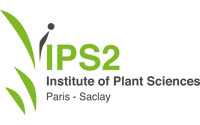Program
Tuesday November 26th 2019
13h00-13h50: Registration
13h50 -14h00: Opening of the symposium - Eva Kondorosi (Szeged, Hungarian Academy of Science, Hungary))
Session 1: Legume Symbiosis
(Chair Florian Frugier, IPS2)
14h00 - 14h35: Jeremy Murray (IPSE Shangai, China)
The RWP-RK Transcription Factor NLP2 is Required for Leghaemoglobin Expression and N2-fixation in Medicago truncatula
14h35 - 15h10: Sandra Bensmihen (Toulouse CNRS LIPM, France)
Towards understanding how symbiotic signals and auxin crosstalk to control root development and symbiosis
15h10 - 15h45: Benjamin Gourion (Toulouse CNRS LIPM, France)
Nodules, the Achilles’ heel of legumes?
15h45 – 16h20: Dugald Reid (Aarhus University, Denmark)
Mechanisms of cytokinin regulation of nodulation
16h20 – 17h00: Coffee break and Poster session
Session 2: Mycorrhizal Symbiosis
(Chair Pascal Ratet, IPS2)
17h00 – 17h35: Maarja Öpik (Tartu University, Estonia)
Arbuscular mycorrhizal fungi under the pressures of environmental change
17h35 – 18h10: Francis Martin (Nancy INRA TMI, France)
The evolution of modes of nutrition in forest fungi – from wood decay to symbiosis
18h10 – 19h30: Poster session
20h00: Dinner
Wednesday November 27th 2019
Session 2 cont.: Mycorrhizal Symbiosis
(Chair Christine Lelandais, IPS2)
08h45 – 09h20: Heike Lehnert (Quedlinburg Julius Kühn Institut, Germany)
Estimation of the genetic diversity in wheat (Triticum aestivum L.) regarding mycorrhization of roots and its impact on drought stress tolerance
09h20 – 09h55: Uta Paszkowski (Cambridge University, UK)
Molecular genetics of arbuscular mycorrhizal symbiosis in cereals
09h55 – 10h30: Coffee break and Poster session
Session 3: Evolution of Symbiosis
(Chair Marc-André Selosse, MNHN)
10h30 – 11h05: René Geurts (Wageningen University, Netherlands)
Parasponia as a comparative experimental system to uncover the evolution of nodulation
11h05 – 11h40: Silvia Pressel (London Natural History Museum, UK)
Plant-Mucoromycotina associations: relics of the ancient past or widespread modern mutualisms?
11h40 – 12h15: Jean-François Arrighi (Montpellier, IRD LSTM, France)
Forward genetics coupled with genome sequencing identify genes essential for the Nod factor-independent symbiosis in Aeschynomene evenia
12h15 – 12h50: Christophe Roux (Toulouse Paul Sabatier University, LRSV, France)
What does genomics of arbuscular mycorrhizal fungi teach us about their biology?
12h50 – 14h00: Lunch
Session 4: Other Symbioses
(Chair Benoît Alunni, I2BC)
14h00 – 14h35:
Alga Zuccaro (University of Cologne, Germany)
Characterization of the molecular mechanisms underpinning local and systemic responses in root-microbe multispecies interactions
14h35 – 15h10: Philippe Vandenkoornhuyse (Rennes University, France)
The reductionist trap for the next agriculture: the holobiont framework as opportunity for understanding and applications?
15h10 – 15h45: Kalliope Papadopoulou (University of Thessaly, Greece)
Close encounters of a legume-Fusarium kind
15h45 – 16h15: Coffee break and Poster session
Session 4 cont.: Other Symbioses
(Chair Peter Mergaert, I2BC)
16h15 – 16h50: Eva Nowack (Düsseldorf Heinrich Heine Universität, Germany)
From endosymbiont to organelle – Exploring the molecular tools needed for genetic integration of an intracellular bacterium
16h50 – 17h25: Bruno Lemaitre (Lausanne Ecole Polytechnique, Switzerland)
The foreign within: Drosophila-Spiroplasma interaction as a model of insect endosymbiosis
17h30: Closing of the symposium - Martin Crespi (Director of IPS2, Orsay, France)
